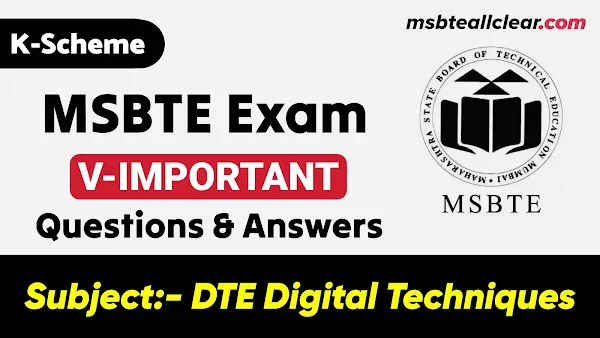DTE Digital Techniques Important Questions with Answers | MSBTE All Clear
MSBTE K Scheme: 313303 Digital Techniques Important Questions with Answers
Introduction to Digital Techniques
Digital Techniques is a core subject in the Semester III Diploma in Computer Engineering and Information Technology under the MSBTE K Scheme. This guide provides valuable insights into the syllabus, essential questions, and solutions, designed to help students excel in their examinations.
What You'll Find in This Guide:
- Unit-wise Breakdown of the syllabus
- Sample MSBTE Question Papers and solutions
- Key Questions with Answers for practice
Why Study Digital Techniques for Diploma?
Understanding Digital Techniques is critical for diploma students as it lays the foundation for digital systems in automation and industrial applications. This course enables students to:
- Master number systems and logic gates.
- Minimize Boolean functions for simpler digital circuits.
- Design combinational and sequential logic systems.
- Interpret memory systems and data converters.
By mastering these skills, students can effectively analyze and troubleshoot digital equipment.
MSBTE Study Group
Join here
MSBTE Study Group
Join here

